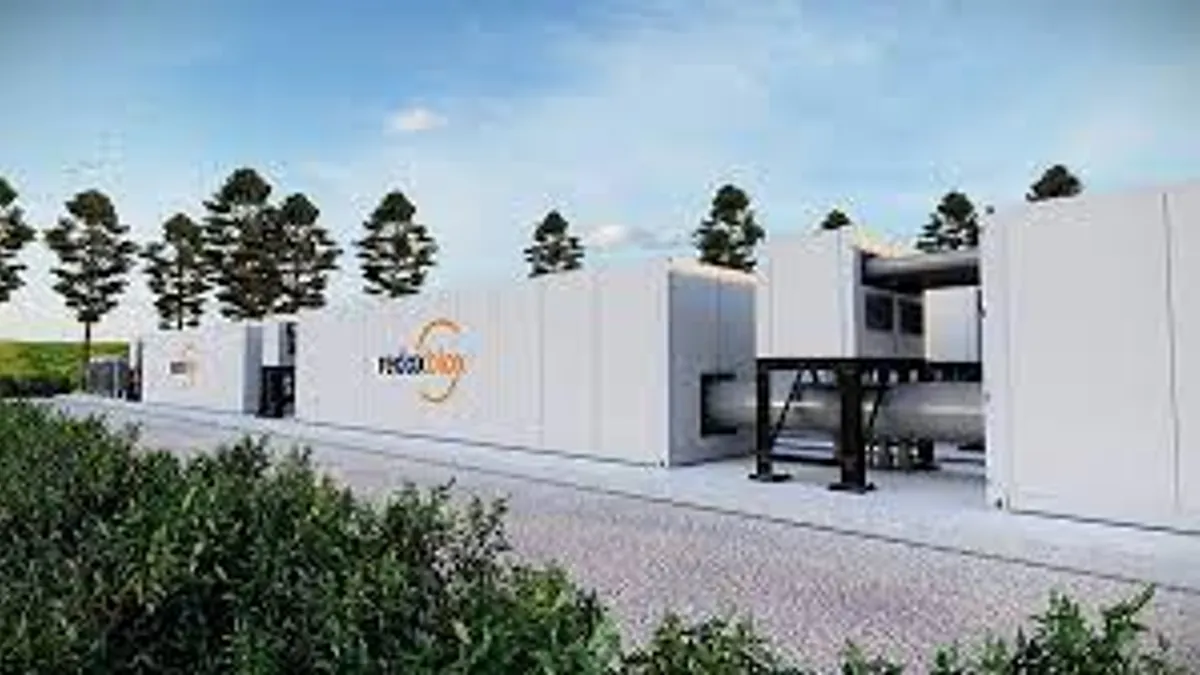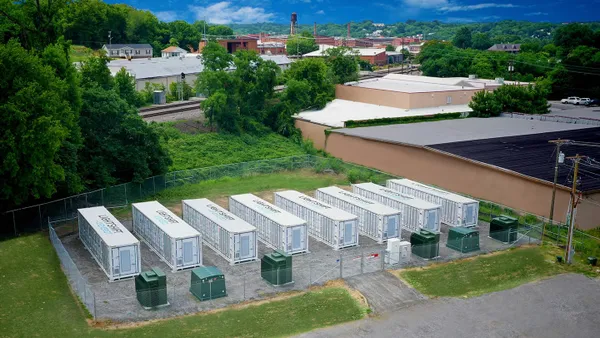Dive Brief:
- Redoxblox has closed a $40.7 million Series A funding round as it works toward commercial deployment of a high-temperature metal oxide battery to support long-duration, grid-scale energy storage and industrial decarbonization, the San Diego-based company said Oct. 30.
- Redoxblox’s batteries use relatively low-cost materials that can store energy at higher densities and with lower energy losses than lithium-ion batteries while enabling direct air heat discharge at temperatures up to 1,500 degrees Celsius, the company says.
- “Our goal is to address the density, cycle life, reliability, efficiency and cost requirements [of thermochemical batteries] to enable the world to decarbonize without economic compromise,” incoming CEO Pasquale Romano said in a statement.
Dive Insight:
Redoxblox’s thermochemical battery design is one of several non-lithium energy storage technologies that could enable cost-effective long-duration grid storage at scale.
Its 20-MWh battery modules are “built with stable, long-lasting, non-toxic, non-flammable, and recyclable materials,” fully charge in two to four hours and can achieve up to 95% round-trip efficiency, the company says. Round-trip efficiency measures useful energy output against total energy input.
The nontoxic metal oxide pellets inside the batteries store energy both chemically and in the form of heat, Redoxblox says. Grid-scale storage customers can discharge the energy as electricity, while industrial users can discharge heat at temperatures between 1,000 and 1,500 degrees Celsius — high enough to replace fossil fuels in high-temperature processes like cement production, which requires temperatures as high as 1,450 degrees Celsius.
During charging, Redoxblox modules use electricity to heat metal oxide pellets to very high temperatures, releasing oxygen and storing heat as chemical energy. During discharging, the reaction is reversed as air flows through the module, rebinds oxygen to the metal oxide and releases heat to the air or through a gas turbine to generate electricity, the company says.
“Our goal is simple: use electrification and thermochemical energy storage to compete as a zero-carbon replacement for natural gas,” Redoxblox Chief Technical Officer and co-founder Jörg Petrasch said in January.
In addition to the Series A funding, Redoxblox in January received grants of $8.9 million from the California Energy Commission and $6.7 million from the U.S. Department of Energy to support two demonstration projects, the company said.
One, in partnership with the University of California at San Diego and the Electric Power Research Institute, will demonstrate the technology’s long-duration storage capabilities. The other, in partnership with Dow and EPRI, will demonstrate industrial steam decarbonization at a Dow facility in West Virginia.
Imperative Ventures, New System Ventures, Breakthrough Energy Ventures, Khosla Ventures and the Michigan State University Research Foundation participated in Redoxblox’s most recent funding round, Michigan State University said in an Oct. 30 news release.













